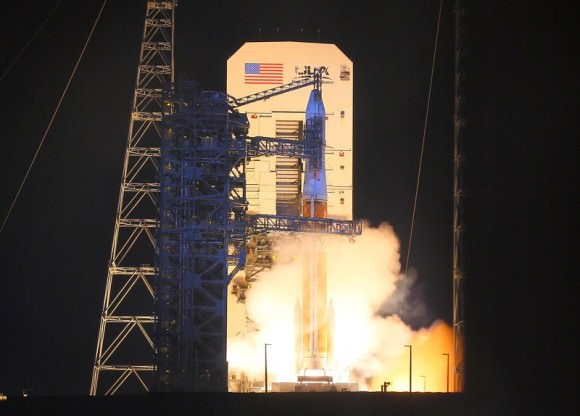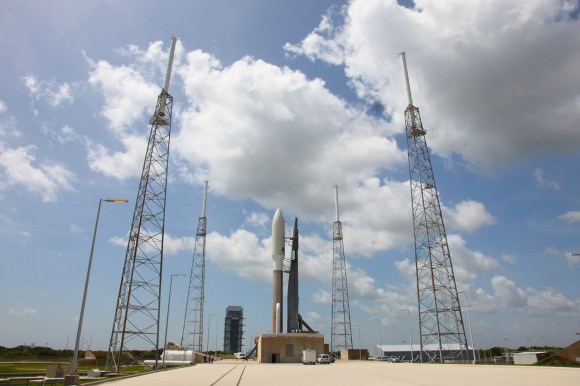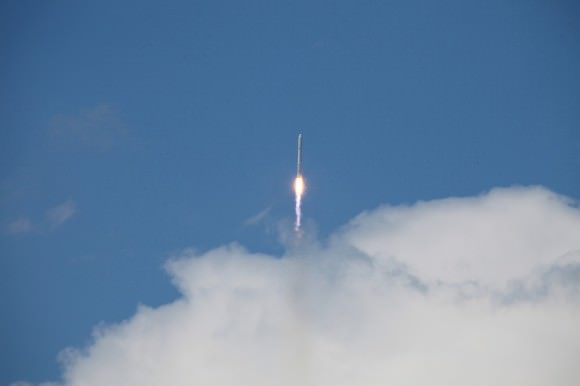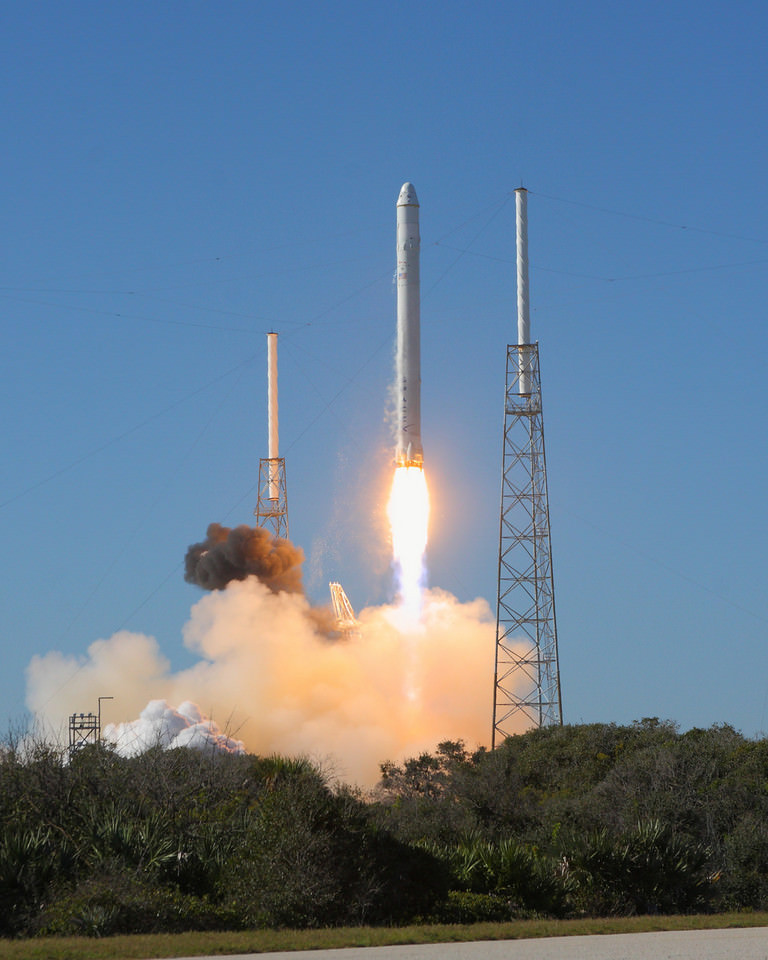[/caption]
The United States Air Force has entered into a Memorandum of Understanding or MOU with the National Reconnaissance Office (NRO) and NASA to bring more players into the launch vehicle arena. On Oct. 14, NASA, the NRO and the U.S. Air Force announced plans to certify commercial rockets so that they could compete for future contracts involving Evolved Expendable Launch Vehicle, or EELVs. This means that Space Exploration Technologies’ (SpaceX) could compete for upcoming military contracts.
“This strategy will provide us with the ability to compete in the largest launch market in the world,” said Kirstin Brost Grantham, a spokeswoman with SpaceX. “There are those who are opposed to competition for space launches, they would prefer to see the status quo protected. But SpaceX has shown it is no longer possible to ignore the benefits competition can bring.”
In terms of sheer numbers of launch vehicles purchased – the U.S. Air Force is the largest customer in the world – with the U.S. taxpayer picking up the tab. Therefore it was considered to be in the Air Force’s best interest to find means to reduce this cost. The U.S. Air Force’s requirements are currently handled by United Launch Alliance (ULA) in what is essentially a monopoly (or duopoly considering that ULA is a collective organization – comprised of both Boeing and Lockheed Martin).

“SpaceX welcomes the opportunity to compete for Air Force launches. We are reviewing the MOU, and we expect to have a far better sense of our task after the detailed requirements are released in the coming weeks,” said Adam Harris, SpaceX vice president of government affairs.
The U.S. Department of Defense (DoD) has decided to go ahead with a five-year, 40-booster “block-buy” plan with ULA – despite the fact that the U.S. General Accounting Office’s (GAO) has requested that the DoD rethink that strategy. The GAO stated on Oct. 17, that they are concerned that the DoD is buying too many rockets and at too high of a price.
Under the Evolved Expendable Launch Vehicle Plan, the DoD is set to spend some $15 billion between 2013 and 2017 to acquire some 40 boosters from ULA to send satellites into orbit. For its part, the DoD conceded that it might need to reassess the manner in which it obtained launch vehicles.

The new strategy which is set to allow new participants in to bid on DoD and NRO contracts is an attempt to allow the free-market system drive down the cost of rockets. Recently, the price of these rockets has actually increased. The cause for this price increase has been somewhat attributed to the vacuum created by the end of the space shuttle program.
Firms like SpaceX, which seek to compete for military contracts, will have to meet requirements that are laid out in “new entrant certification guides.”
“Fair and open competition for commercial launch providers is an essential element of protecting taxpayer dollars,” said Elon Musk, SpaceX CEO. “Our American-made Falcon vehicles can deliver assured, responsive access to space that will meet warfighter needs while reducing costs for our military customers.”



Maybe they can land one of those $350 Billion defense contracts that are awarded to firms like Boeing (for example–they provide 18 flying tanker aircraft, the USAF pays them $350 Billion). One single contract awarded to one firm for 18 planes. That’s more than half of the entire European debt crisis. Yes indeed. Go for those USAF contracts. We don’t need affordable health care. We need weapons systems. We don’t need affordable public education. We need orbiting killer satellites. We can’t afford healthcare or education.
The military has always been the precursor for technological achievements. We wouldn’t have got anywhere near space if it wasn’t for arms development during the world wars.
You’d think the awarding of a “$350 Billion contract” would create hundreds or thousands of jobs, creating more tax payers which in turn will get spent on improving public services.
“The military has always been the precursor for technological achievements.”
Refs please. I thought the statistics were that civilian development was much more prevalent, but wars have driven specific large scale efforts. (Say, the German highways which were made for WWII.)
Click here, here, here, and here.
Click here, here, here, and here.
Cheers Ivan.
Ferengi Rule of Acquisition #34: War is good for business.
Perfect. I’d like to see this quite a bit more often. The reason the military budget is so insanely inflated is all of those damn non-competitive contracts for the more mundane things (like satellite launches,) logistical support things (like those 18 tanker planes) and FUEL. Read yesterday that it takes a gallon of fuel to move an aircraft carrier a foot. All of these things are exactly the kinds of costs that should be opened to free market competitiveness which can find solutions in house non-comp contractors aren’t incentive to find. Thats where the military should be opened up to the free-market, not in actual force projection, like unaccountable PMCs.
You read wrong, our entire aircraft carrier fleet uses nuclear turbines. Also, the tanker program WAS put to bid. Boeing won out over EADS.
Sad part is if SpaceX beats and gets military contracts, Key people will disappear in the SpaceX corporation never to be heard from again.
nice to have chatted folks some men in black SUV pulled up and want to talk to me NOW!